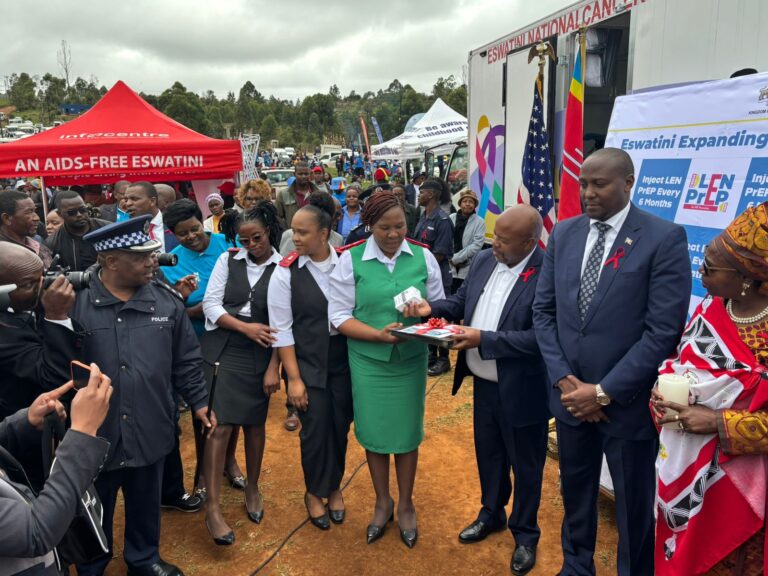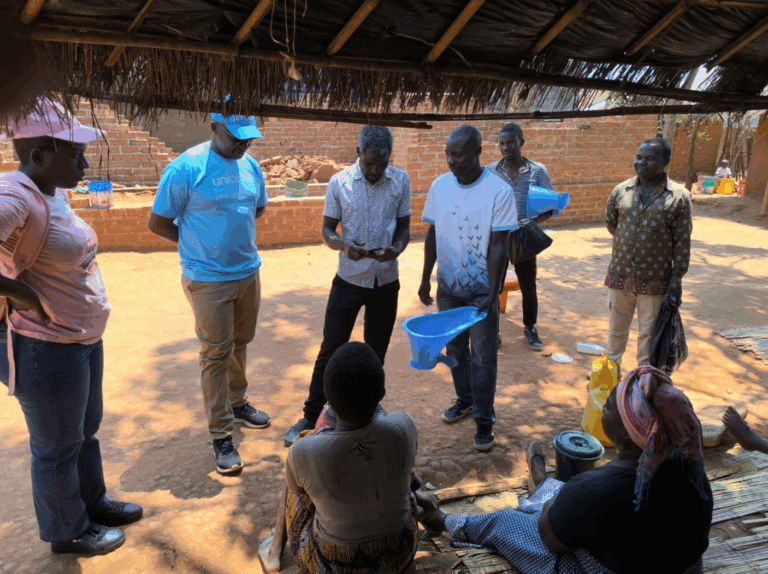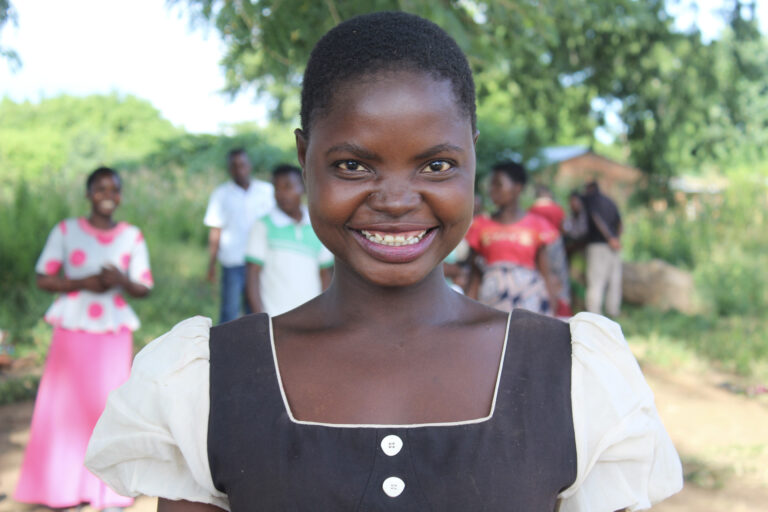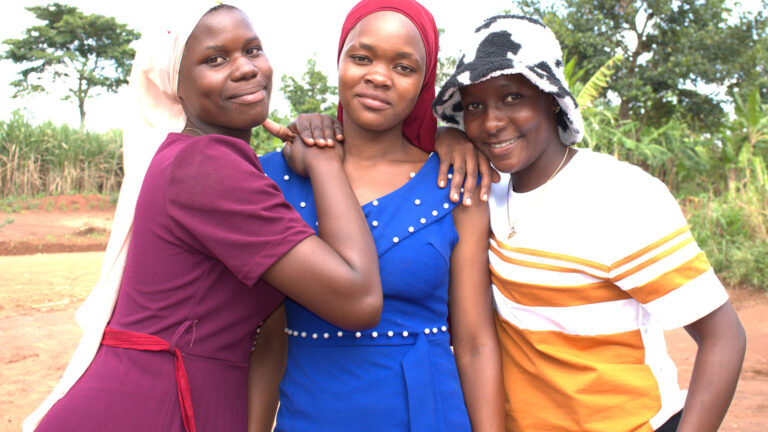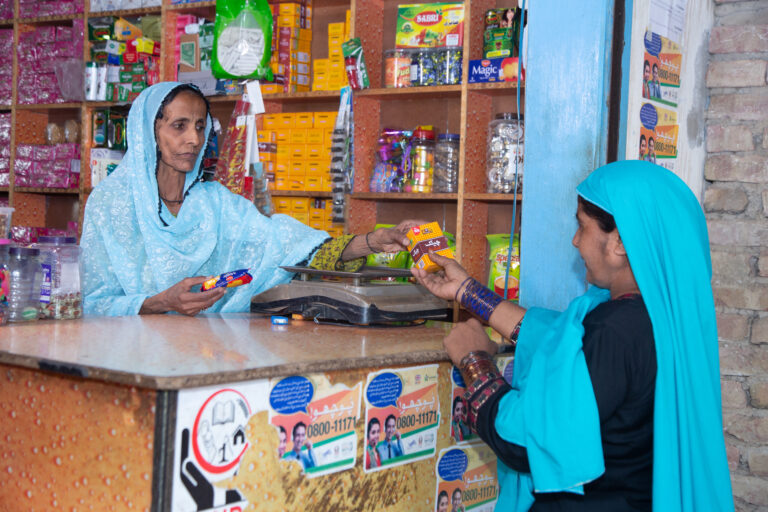By Taylor Prochnow, Malaria Communications Manager, PSI
Building on the success of its 2023 campaign, Côte d’Ivoire recently launched its second seasonal malaria chemoprevention efforts in Dikodougou and Dabakala Health Districts. At the July 27 kickoff event, Kouame Bakary, Dikodougou’s Departmental Director of Health, confidently set the ambitious goal of reaching 99% of eligible children with the first dose of antimalarial medicine by the end of the first cycle. The campaign aims to reach 51,772 children aged three to 59 months across the two health districts.
The World Health Organization recommends SMC as a vital intervention to protect children under the age of ten from malaria during the high-transmission rainy season. These campaigns involve administering multiple doses of lifesaving antimalarial medicine each month throughout the rainy season when malaria-carrying mosquitoes flourish.
After administering the first dose to children attending the launch ceremony, community volunteers immediately began door-to-door visits. By July 31, the first cycle of the campaign had successfully reached 98.5% of targeted children, marking a significant progress toward the campaign’s objectives. Caregivers, eager to protect their children, actively participated and learned about the outreach efforts for the four-month campaign.
“We aim, with the support of the technical and financial partners of the Ministry of Health, to achieve a rate of at least 99% of children having received the first dose of [anti-malarial medicine] at the end of the first cycle of this second edition."
Kouame Bakary, Dikodougou Departmental Director of Health




Leading up to this successful kickoff were months of planning to review outcomes and lessons learned from the 2023 campaign with the goal of strengthening this year’s campaign. Based on our insights, these are the key elements to achieving a successful campaign:
LEADING WITH COLLABORATION
In 2023, the PMI Stop Djekoidjo project, funded by the U.S. President’s Malaria Initiative (PMI) and led by Population Services International (PSI), supported the Ivorian Ministry of Health’s National Malaria Control Program (NMCP) in launching its first SMC campaign in two health districts. To enhance the second campaign, PMI Stop Djekoidjo and USAID Mission staff worked with the NMCP to address previous challenges and incorporate lessons learned into the 2024 plan.
This review of activities included the development and validation of tools, updating the national SMC guidance, conducting a workshop for the co-creation of messages, communication materials and plans to advocate and inform stakeholders, testing and updating digital tools (such as the monitoring and evaluation metrics), planning for daily summary meetings during each cycle at the district-level, and pre-mobilization meetings organized by the administrative authorities with community leaders, women’s groups, town criers, caravans, and local radio stations to share out information before and during the campaign.
Involving local authorities, community leaders and women’s and youth associations leads to strong community mobilization and support from the population: 99% of the mothers interviewed decided to present their children to the various cycles in 2023. Moreover, active participation by local authorities in coordination and monitoring contributes to high mobilization rates (86% in cycle 1 and 89% in cycle 2 of 2023).
Dr. Coulibaly Aboubakari, Health District Director of Dabakala, emphasized the importance of involving local stakeholders: “Change is more likely to last over time if decentralized health officials and communities control the process, implementation of interventions, and communication.”
The planning meetings and improved strategy for the second year culminated in a volunteer training session held the week before the campaign launch. Led by the PMI Stop Djekoidjo project and the NMCP, this training equipped volunteers with the skills to track which households they visited each cycle, properly administer antimalarial medicine, collect data, monitor coverage, and submit daily reports for district-level tracking. Volunteers also received training in communication techniques for sharing SMC and malaria prevention information.
“I’m excited to participate in this year’s pre-SMC campaign training because it gives me a chance to support our health providers who work hard every day in the health facilities for our communities,” shared Kone Kitanha Emmanuel.
IMPROVING DATA QUALITY
A new fully digitized process was a key feature of this year’s campaign. Using tablets provided by USAID with offline internet access, volunteers can quickly identify and search registered beneficiaries via QR codes. This allows real-time data synchronization, improving campaign efficiency and accuracy. The NMCP, Ministry of Health, and PMI Stop Djekoidjo will use this data to make informed decisions for continuous improvement during and after the campaign.




“Local teams are now more engaged and equipped to conduct this prevention campaign because of the quality of training they have been getting.”
Dr. Coulibaly Aboubakari, Director of the Dabakala Health District
OUR ONGOING COMMITMENT TO IMPROVING SMC CAMPAIGNS
As the campaign progresses, capturing successes, impacts, and adjustments made in each cycle is essential for continuous improvement. Country-led SMC campaigns have proven to be the most effective way to protect children, saving millions of lives annually through the sustained efforts of Ministries of Health, NMPs, and national and local partners involved in the planning and execution.
PSI will continue to provide technical guidance, programmatic coordination, and monitoring and evaluation to consistently improve this lifesaving intervention. Additionally, PSI will share sharing lessons learned and best practices from SMC campaign planning and implementation with the global malaria community, drawing on experiences of partner countries.
Stay engaged with PSI for updates and reflections from volunteers and participants throughout the 2024 campaign in Côte d’Ivoire on Twitter and LinkedIn.
The PMI Stop Djekoidjo project is funded by the U.S. President’s Malaria Initiative (PMI) and led by Population Services International in Côte d’Ivoire with technical and operational assistance provided to the National Malaria Control Program (NMCP) for malaria prevention interventions.

